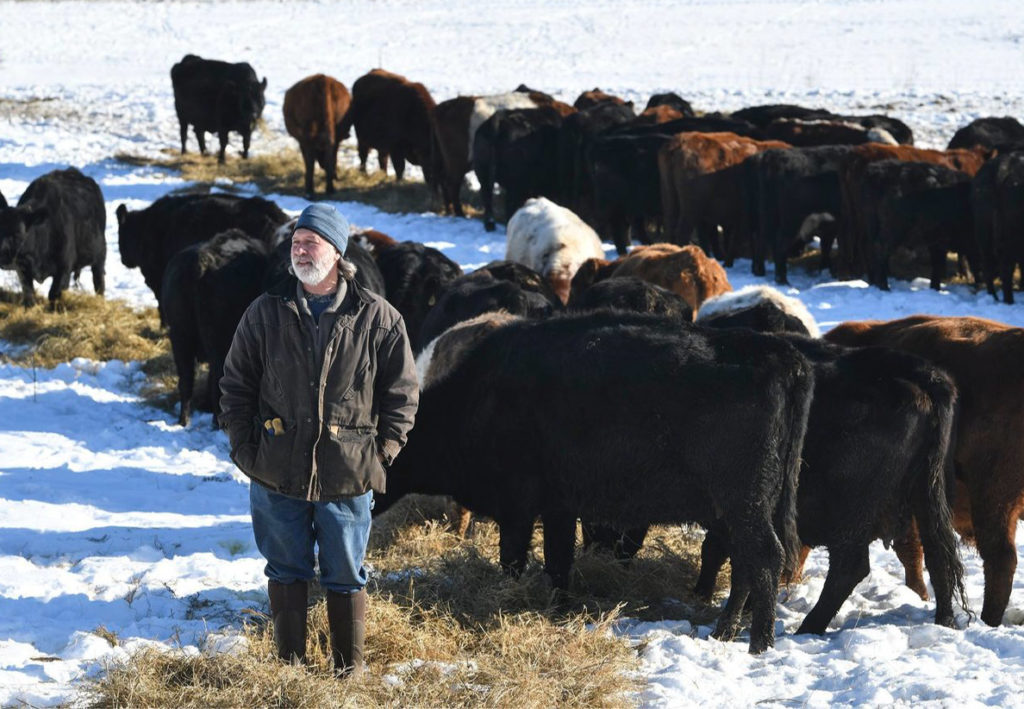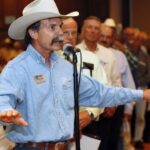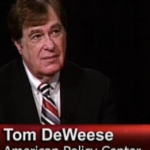Trump wants to end rule-making by memo. Here’s a test for USDA.
The Wall Street Journal – Editorial March 5, 2020 7:12 PM ET
https://www.wsj.com/articles/cowboy-regulators-need-to-be-lassoedcowboy-regulators-need-to-be-lassoed-11583432077
President Trump promised as part of his deregulation campaign to end bureaucratic “guidance” that dodges normal rule-making. Someone should tell the U.S. Department of Agriculture as it tries to impose burdensome new cattle-identification requirements.
To prevent the spread of diseases like bovine tuberculosis and brucellosis, the USDA needs to identify and track livestock. In 2013 the agency finalized a rule requiring identification for all cattle grazed, sold, bought or slaughtered across state lines. The regs allowed livestock producers to choose from a range of ID options, including brands, tattoos, metal ear tags or radio-frequency identification.

PHOTO: DAVE SCHWARZ/ASSOCIATED PRESS
Then last spring the USDA announced a “big change” to the ID requirements in a two-page fact sheet. Beginning in 2023, the agency would accept only radio-frequency ID. Ranchers feared that in addition to electronic tags they’d have to buy sensors, retool ranching infrastructure, and stress their cattle as they recorded data. The mandate would be especially hard on cattlemen in states without a commercial packing plant since it applies only to livestock bound for the interstate market.
Ranchers from Wyoming and South Dakota sued in October, as did R-CALF USA, which represents more than 5,000 livestock producers. They said the USDA violated the Administrative Procedure Act by failing to herd this mandate through a formal rule-making.
Less than a week later, Mr. Trump issued two executive orders restricting regulation by memo. The USDA responded with a statement claiming its April 2019 fact sheet was “no longer representative of current agency policy” and that the executive orders had “highlighted the need for transparency and communication” before imposing “any new requirements on American farmers and ranchers.” A federal court declared the case moot.
But hold your yee-haw because USDA’s cowboy regulators are back in the saddle. In the February and March issues of the trade publication Nebraska Cattleman, an ad bearing the USDA logo-and a striking resemblance to the original fact sheet-described a government-led transition to radio-frequency ID for cattle headed across state lines. The publication says the Nebraska Department of Agriculture placed the notice, and the ad’s text says it was funded “through a cooperative agreement” between the state agency and USDA.
The ranchers’ lawyer, Harriet Hageman, contacted the U.S. attorney representing the USDA. He said Nebraska didn’t have USDA approval for the ad, and by the time the feds tried to pull it the magazine had gone to print. The USDA says its October retreat still stands but wouldn’t respond to questions about the ad or if new ID requirements are in the works.
Ranchers are now urging the federal judge to reopen their case. They want a formal retraction of the policy and a more robust USDA effort to notify state and tribal officials about what the current requirements actually are. A judge may have to restore some regulatory clarity.



